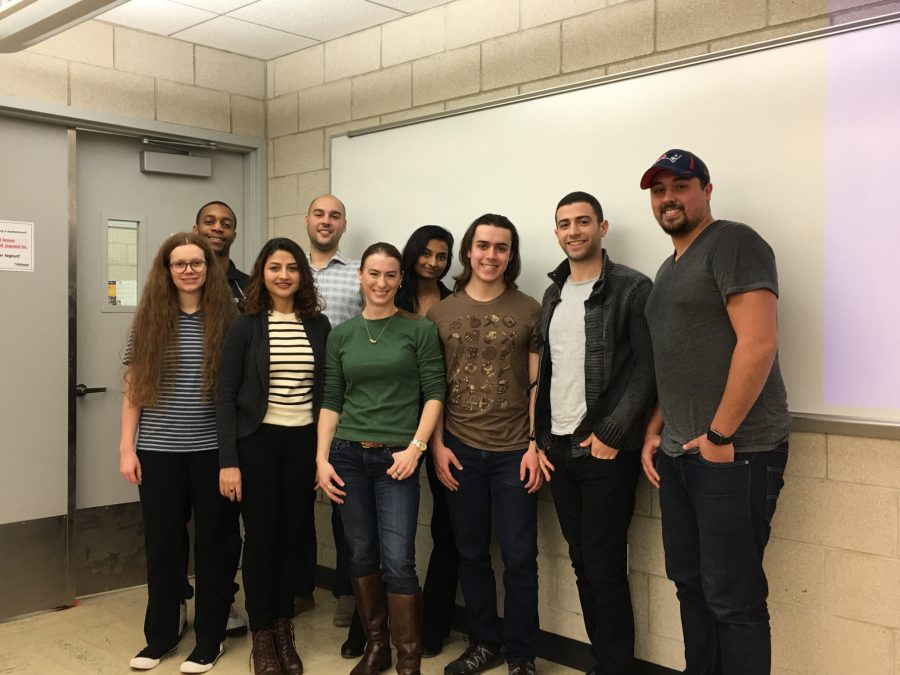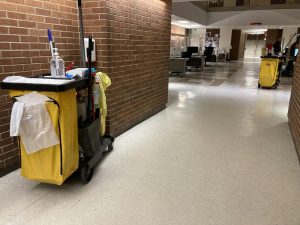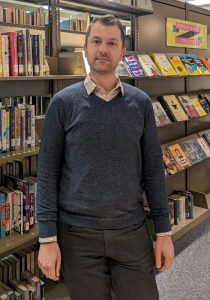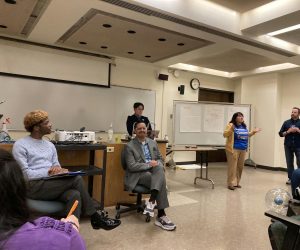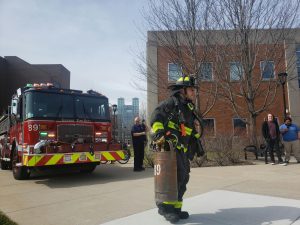Google funds student-proposed computer science grant
Courtesy of Assistant Professor Rachel Trana
Left to right, back row: David McCoy, Austin Leatham, Ashiya Patel Left to right, front row: Lauren Rabe, Dikshya Acharya, Rachel Trana, Emmet Hilly, Yaakov Kalman, Joseph Rodriguez
March 29, 2017
NEIU students Julien de Castelnau and Austin Leatham wrote a grant proposal that was recently funded by Google to help inspire high school students from low-income or first-generation families to pursue a college degree in computer science.
Google awarded the grant, a total of $4,450, which will fund the Upward Bound Math and Science program that introduces students to computer science concepts by offering classes on the subject.
“The basic idea is to get young minds in the community inspired by computer science by working with UBMS,” Leatham said, an NEIU student majoring in computer science.
Leatham and de Castelnau hope that UBMS will help high school students further their professional career.
“After getting my hands in code, I realized I was really inspired by it. So it’s nice to do that from the outside and get high schoolers inspired while they’re in high school to make the decision to go into computer science.”
Leatham and de Castelnau were approached by Assistant Professor Rachel Trana and Associate Dean Marcelo Sztainberg from the department of arts and sciences to write the proposal. They were given a deadline of about a week to submit to Google igniteCS, which provides funding and resources toward computer science mentorships.
“The hardest part was pulling together all the other mentors getting interested in commitments from them, because of the students quickly changing their plans,” Leatham said. “We were working over that whole weekend, on our own time, emailing back and forth while writing the proposal.”
Leatham said it was his first time writing a proposal for a grant, but received help from de Castelnau and Trana.
The main objective of the proposal was fostering an inclusive environment, serving underrepresented high schoolers that are not in the major demographic of computer science like minority or female students.
An overview of the program, along with the list of sessions, were written into the proposal, as well as the overall budget cost.
UBMS is a federally funded program housed at the Center for College Access and Success of Northeastern Illinois University which serves high school students from local Chicago public schools.
The program was designed for developing science and math skills, encouraging students to pursue degrees in those areas after high school. It is directed at first-generation, college-bound students or those who come from low-income families.
The sessions are two hours and continue for six weeks, providing hands-on experience like disassembling and reassembling computers, coding and learning about softwares. Pre-surveys and post-surveys will also be provided toward mentors and mentees to continue seeking ways of improving the sessions.
“We want to reach people that haven’t thought of pursuing a computer science degree,” Trana said. “It is unrestricted in the sense that we want to be having peer-mentoring. There is no GPA (requirement). We want to target students that haven’t thought about computer science as a possibility.”
Trana said that UBMS will be contacting Roosevelt High School to recruit students that haven’t participated in the program and do not have experience in coding or computer science but have an interest in computer science, though it is not a requirement.


